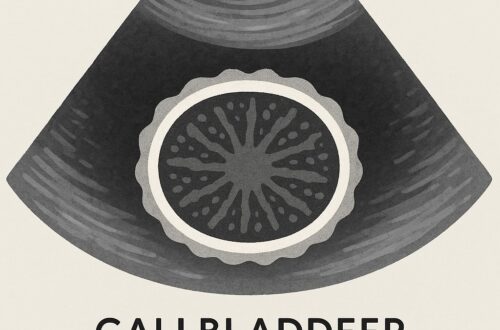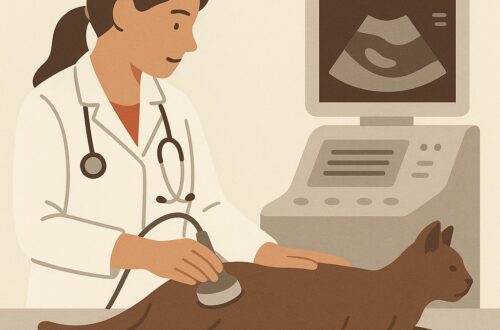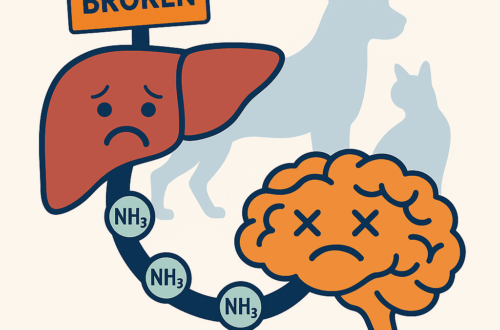The environment contains all sorts of infectious organisms, little microscopic critters that can cause illness in our beloved dogs and cats. One such infection called coccidiosis is a common parasitic infection of the small intestine. Given the prevalence of this disease, I wanted to share some useful information about it in this week’s post. Happy reading!
Coccidiosis – What is it?
Coccidia are parasites normally found in the intestinal tract. There are many genera that infect dogs and cats, including:
- Isospora
- Hammondia
- Besnoitia
- Sarcocystis
- Caryospora
- Toxoplasma
- Neospora
- Cryptosporidium
- Cyclospora
Members of the Isospora genus are the most commonly recognized coccidians to infect dogs and cats. Four species infect dogs: I. canis, I. ohioensis, I. burrowsi, and I. neorivolta. Two species infect cats: I. felis and I. revolta.
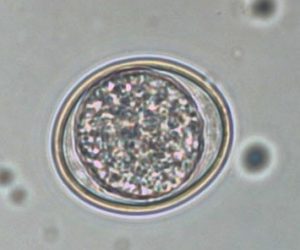
Pets may become infected with Isospora spp. by ingesting the parasite directly or indirectly in prey animals (i.e.: rodents). Isospora spp. are initially in the form of special structures called sporulated oocysts or monozoic cysts. Once exposed to bile in the body, sporozoites are releases from the oocysts and cysts, allowing them to invade the small intestine. In the small intestine, the sporozoites can undergo either asexual or sexual reproduction called endodyogeny and merogony/gametogony, respectively. Ultimately, a zygote is formed, and this form subsequently matures to an unsporulated oocyst that is passed in feces. In the environment, an oocyst becomes infective within 12-36 hours.
Coccidiosis – What does it look like?
Patients with healthy immune systems who are exposed to Isospora spp. may never develop clinical signs. If they do develop clinical signs, they often have a concurrent infection with another infectious organism. In contrast, neonatal and juvenile patients, as well as those with compromised immune systems, are over-represented for clinical signs of infection. German shepherds may have an increased susceptibility to infection. The most common clinical sign of infection is diarrhea. Severely affected animals are often depressed and may also vomit and have reduced (or loss of) appetites.
Coccidiosis – How is it diagnosed?
Diagnosing coccidiosis is a relatively straightforward process. A sample of feces is evaluated, looking for oocysts similar to the way veterinarians look for intestinal “worms.” Since shedding of oocysts in feces is sporadic, a single negative fecal test results does not rule out coccidiosis in patients with compatible clinical signs. Multiple fecal tests may be needed. Fecal testing is often performed by primary care veterinarians, but occasionally, fecal samples are sent to reference laboratories for examination by board-certified veterinary parasitologists.
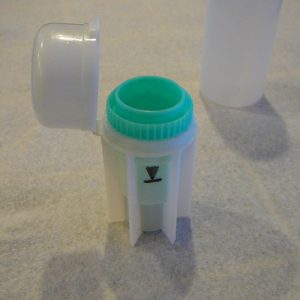
Coccidiosis – How is it treated?
Traditional therapy for coccidiosis involves giving my mouth a medication that inhibit coccidia from reproducing – these types of drugs are called coccidiostats. Sulfa drugs / sulfonamides are the quintessential class of coccidiostats. Treatment should extend a couple of days beyond resolution of diarrhea and for at least five days today. Treatment lasting more than 3-4 weeks is occasionally necessary.
Newer medications that may be used to treat coccidiosis are coccidiocidal drugs, medications that actually kill coccidia outright. Often only a few doses are needed for eradication of infection. Pet parents may find it helpful to partner with a board-certified veterinary internal medicine specialist to develop a logical and effective treatment plan.
The take-away message about coccidiosis in dogs and cats…
Coccidiosis is a parasitic infection of the small intestinal tract. Pets become infected by ingesting the organism directly from the environment or indirectly from a prey species. Infection is diagnosed via microscopic examination of feces, and prompt treatment results in good outcomes.
To find a board-certified veterinary internal medicine specialist, please visit the American College of Veterinary Internal Medicine.
Wishing you wet-nosed kisses,
CriticalCareDVM



